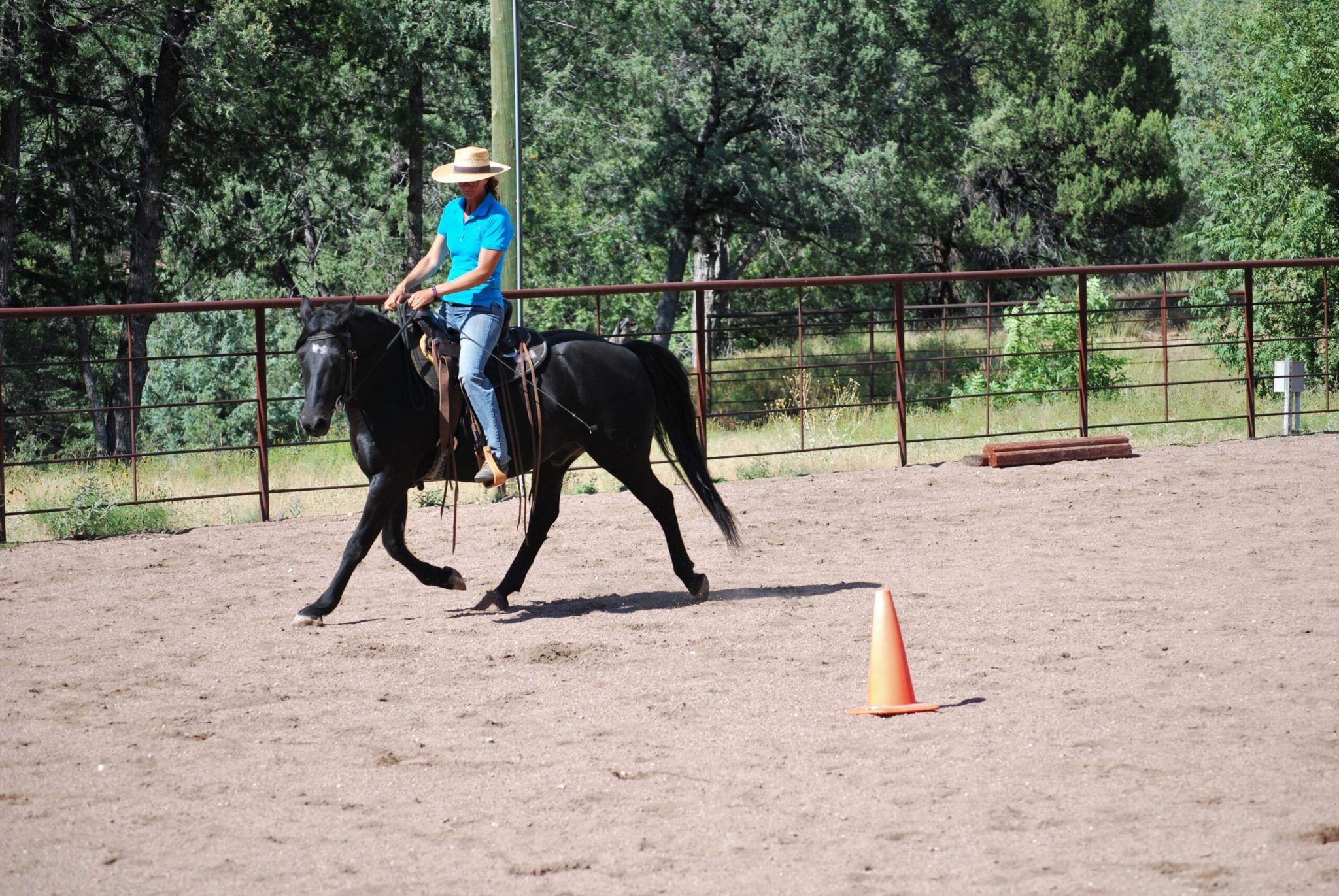[ad_1]
Correctly navigating challenges that come up when working together with your horse can produce development in your relationship. Too usually, nevertheless, these challenges turn into obstacles that neither associate is aware of the way to work by. Beneath are 4 frequent issues with which riders usually battle, in keeping with coach Tessa Nicolet:
1. Worry
The commonest roadblock for horse and rider, worry could make studying subsequent to inconceivable. “Both the horse [or] the rider has been by a state of affairs the place that they had an accident or a detailed name,” she says. This could trigger them to lose belief in one another. This isn’t at all times straightforward to fix, however Nicolet emphasizes that re-establishing belief is important. Belief have to be current earlier than the educational atmosphere can reclaim its rightful title as a optimistic place.

2. Lack of focus
This downside develops when a rider repeatedly enters the educational atmosphere with out a plan. “I see a number of riders that find yourself caught and doing the identical factor over and over,” Nicolet says. The horse finally turns into disinterested. Progress halts as a result of no new studying takes place, simply repetitive drills devoid of enjoyable or curiosity, she explains.
3. Lack of enjoyable
Enjoyable is a vital factor of a wholesome studying atmosphere. When it’s forgotten, issues come up. A lack of enjoyable is commonly associated to a scarcity of focus, Nicolet factors out. “If we’re not working towards one thing and we’re bored, are you able to think about how bored our horses are?” she asks. This may be harmful for a horse and rider as a result of the horse isn’t mentally engaged whereas working. As an alternative, he mindlessly strikes his toes. When the surprising occurs, Nicolet explains, it might probably trigger the horse to re-engage together with his environment and reply with worry.
4. Lack of assist
The fourth commonest downside Nicolet observes is a scarcity of rider assist. How a lot assist is required will fluctuate, but when riders aren’t being safely launched to new issues on which to work, they’ll get caught in what Nicolet calls a “repetitive loop.” “Having some sort of assist group, be it a web based community or be it a barn household … is basically, actually necessary for us as people to study and to bounce concepts off of one another and encourage one another,” she says.
Don’t miss out! With the free weekly EQUUS e-newsletter, you’ll get the most recent horse well being info delivered proper to your in basket! In the event you’re not already receiving the EQUUS e-newsletter, click on right here to enroll. It’s *free*!
[ad_2]
Supply hyperlink
